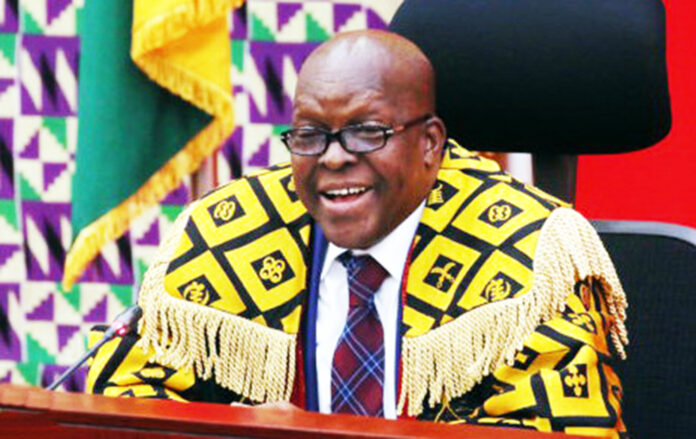The 2024 budget statement and economic policy of the government of Ghana for the year ending December 31, 2024 has been approved by Parliament.
The budget statement and the economic policy, which faced some challenges, was finally approved on Thursday, December 7, 2023 with a majority headcount of 138.
The minority trailed with 136 votes, with one absentee. The House is set to now consider and approve the various estimates and the appropriation.
The Speaker of Parliament, Alban Sumana Kingsford Bagin, led the House to undertake a headcount, after his decision was challenged last week. After the process yesterday, where names of all members were mentioned and they stood to respond, he announced that the ‘Ayes’ had 138 and the ‘Nos’ had 136, with one absentee, adding that: “Hon Members, the ‘Ayes’ have it.”
The Member of Parliament for Assin North, James Gyakye Quayson, was the only absentee, as he is currently in Canada for medical treatment.
PROCEDURE
During proceedings yesterday, the Speaker called for a headcount to be taken, but the Member of Parliament for Essikado-Ketan, Joe Ghartey, quoting Standing Order 141, argued that the motion had been advertised for votes to be taken on the budget statement and the economic policy, but that was unconstitutional.
According to him, the law permits two types of voting, which are voting on the various estimates or the appropriation.
He argued that the convention of voting on the statement was “not supported by the Standing Orders or the Constitution.” He said the House could not vote on the budget when it had not dealt with the estimates.
“I don’t want to bore you with reading the Standing Orders because it is in your bosom. But at this stage, we cannot be voting on the budget statement because the budget is defined by the standing orders as the estimates and expenditures of the government, with respect to each financial year.
“We cannot vote on it because we have not yet finished discussing it. So, at this stage, it is only a procedural vote… Mr. Speaker, I seek your guidance on this. Thank you very much,” he ended.
NO CONSENSUS
In a rebuttal, the MP for Bawku Central, Mahama Ayariga, argued that his colleague should pay attention to the nomenclature used in the constitution and the standing orders.
He quoted Article 197, saying the President, causing the estimates and expenditures of the government to be laid, and then Order 143, saying that after the laying of the estimates of the revenue and expenditures, a motion must be moved for the House to approve the financial policy.
He argued that, “financial policy is not the same as estimates of revenue and expenditure. It is the policy that informs the estimates of revenues and expenditures. So, we are to debate the policy informing revenues and expenditures and take a decision on that before we go to the appropriation itself.”
He argued that once there was a motion, it required a vote, unless there was a consensus, but in the matter of the 2024 budget, there was no unanimity. He said the Speaker did right by directing a headcount.
HEADS COUNTED
The Speaker, Alban Sumana Kingsford Bagbin, intimated that the issue was not up for debate, as the MP for Essikado-Ketan only sought his guidance.
He said he could listen to the other side or not, but he allowed Ayariga to speak, adding that his decision does not open up the matter for debate.
“I think it is something that we will debate later on. But as for today, the heads will have to be counted,” he announced to the amusement of the House.
He called on the Clerk at table to commence the head count, saying to the MPs that “if your head is not here, it will not be counted.”
ESTIMATES
The adoption of the motion paves the way for the various estimates from the government institutions to be scrutinised by the various committees for onward reporting to plenary for debate, and subsequent approval or otherwise.










